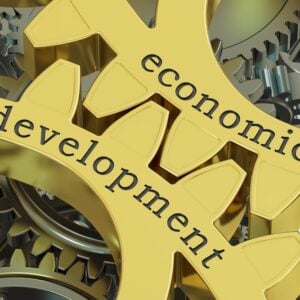On the sidelines of the Fourth International Conference on Financing for Development (FFD4) in Seville, the United Nations Development Programme (UNDP) hosted a high-level event titled “Building the Future of Engagement with the Private Sector.” The event focused on mobilizing private capital and reforming the international financial architecture, highlighting UNDP’s timbuktoo initiative as a prime example of this evolving approach to development finance.
The timbuktoo initiative was introduced as a transformative model that shifts the paradigm from traditional development aid to investment-centered, innovation-driven, African-led growth. It connects Africa’s innovation ecosystems to global financial markets and research opportunities. The initiative emphasizes multi-stakeholder partnerships to unlock Africa’s potential in research, entrepreneurship, and technology.
Showcasing collaborations with partners such as Equity Group, 500 Global, NVIDIA, and UNLEASH, the event emphasized how first-loss capital and mobilization strategies via the timbuktoo Africa Innovation Foundation are de-risking the investment environment in Africa. These partnerships align with increasing interest from pension and sovereign funds to allocate resources toward sustainable development, pointing to the emergence of a new asset class focused on impact.
Key discussions centered on scaling domestic capital, enhancing investor confidence, and building a robust pipeline of investment-ready startups. Stakeholders agreed on the need for financial models that satisfy capital market requirements while delivering clear development outcomes, especially in underserved regions.
In the first panel discussion, representatives from the Digital Cooperation Organization, Zambia’s Industrial Development Corporation, and the government of Enugu State, Nigeria, examined the role of public-private collaboration. They stressed the importance of shaping political and economic conditions that can attract sustainable investment and applying ecosystem-wide approaches for inclusive development.
The second panel, which featured industry leaders from 500 Global, Equity Group, and UNLEASH, explored how companies are embedding social and environmental impact into business strategies. Blended finance and venture philanthropy were presented as key instruments for scaling enterprises aligned with the Sustainable Development Goals (SDGs), reinforcing that corporate responsibility is integral to Africa’s economic future.
Participants also discussed the importance of reforming global financial structures to support innovation. Tools like concessional finance and blended instruments were recognized as effective in attracting private capital at scale and shifting the narrative around development to one of long-term sustainability and returns.
The event concluded with a strong call to maintain focus on development efforts amid growing global instability. This high-level session reinforced the need for deeper collaboration between public and private actors to build sustainable, innovation-driven economies.
Overall, the side event advanced UNDP’s strategic priorities for FFD4 by building consensus on public-private partnerships, encouraging alignment of business objectives with the SDGs, and validating timbuktoo as a scalable solution for the future of development finance. UNDP committed to expanding this model through continued collaboration with governments and private-sector stakeholders.







